More than 58 million Americans used cannabis last year, and nearly half of them were also taking prescription medications. That’s not just a coincidence - it’s a growing health concern. If you’re using cannabis - whether it’s CBD oil, edibles, or smoked flower - and you’re on any kind of medication, you need to understand the risks. These aren’t theoretical warnings. Real people have ended up in the hospital because of unexpected interactions between cannabis and their drugs.
How Cannabis Changes How Your Medications Work
Cannabis doesn’t just float through your body. It actively interferes with the enzymes that break down most of your medications. The liver uses a group of enzymes called cytochrome P450 - or CYP450 - to process about 60% of all prescription drugs. CBD and THC, the two main compounds in cannabis, block these enzymes. When that happens, your medications don’t get broken down as quickly. That means they build up in your system, sometimes to dangerous levels.
For example, if you’re taking warfarin - a blood thinner - and you start using CBD, your INR (a measure of how long it takes your blood to clot) can spike by nearly 50% in just 72 hours. That’s not a small change. It means you’re at serious risk of internal bleeding. One study found 12 cases of life-threatening bleeding in people who combined warfarin with cannabis. Another showed that even weekend cannabis use could triple bleeding risk within two days.
It’s not just warfarin. Tacrolimus, a drug used by transplant patients to prevent organ rejection, can have its levels increase by 300% to 500% when taken with cannabis. That’s enough to cause kidney damage or even organ failure. Clobazam, an anti-seizure medication, sees its concentration jump by 60% to 500% when used with CBD. Many epilepsy patients have had to cut their clobazam dose by 40% just to avoid being too sedated to walk.
High-Risk Medications: Avoid or Be Extremely Careful
Some medications are so sensitive to cannabis that even small amounts can be dangerous. Here are the top three you need to watch out for:
- Warfarin: As mentioned, CBD and THC slow down how fast your body clears warfarin. This can cause dangerous bleeding. Experts now recommend checking your INR every 3 to 5 days if you’re using cannabis, not once a week like normal.
- Tacrolimus: Used after kidney, liver, or heart transplants. Even a low dose of CBD can push tacrolimus levels into toxic territory. One case report showed a patient’s levels jumped so high they needed emergency dialysis.
- Clobazam: A common anti-seizure drug. CBD increases its levels so dramatically that patients often become overly drowsy, confused, or even unable to stand. Neurologists now routinely ask epilepsy patients about CBD use before adjusting doses.
These aren’t "maybe" risks. They’re documented, repeated, and life-threatening. If you’re on any of these, talk to your doctor before using cannabis - even if it’s just a low-dose CBD gummy.
Moderate-Risk Interactions: Monitor and Adjust
Not every interaction is an emergency, but they still need attention. Here’s what you should know about these:
- Benzodiazepines (like alprazolam, diazepam): Cannabis makes you feel more sedated. In elderly patients, this increases fall risk by 47%. One Reddit user described feeling "so dizzy I couldn’t open my eyes" after combining CBD with Xanax.
- Opioids (like oxycodone, morphine): Cannabis can slow down how fast your body clears these drugs. That means more pain relief - but also more risk of slowed breathing, especially if you’re already on a high dose.
- Calcium channel blockers (like amlodipine): Used for high blood pressure. Cannabis can raise drug levels by 30-40%, leading to dizziness, fainting, or dangerously low blood pressure.
With these, you don’t need to stop cannabis entirely. But you do need to monitor yourself closely. Are you more tired than usual? Dizzy? Slurring your words? These are signs your body is struggling to handle the combo. Talk to your doctor about adjusting your medication dose - not just cutting back on cannabis.

Low-Risk Interactions: Still Worth Knowing
Some medications show only minor changes when mixed with cannabis. That doesn’t mean they’re safe - just that the risk is lower.
- SSRIs (like sertraline, fluoxetine): CBD may raise levels by 10-15%, but most people don’t notice any side effects. One survey of 872 users found 41% reported zero changes.
- Statins (like atorvastatin): Levels can rise 20-25%, but there are no confirmed cases of muscle damage (rhabdomyolysis) linked to this combo.
- Theophylline: This asthma drug is the exception. Smoked cannabis actually lowers its levels by 25-30%, which could make asthma harder to control.
Even with low-risk drugs, individual reactions vary. What’s harmless for one person might make another feel off. Always start low and go slow.
How You Take Cannabis Matters
Not all cannabis is the same. How you use it changes how it interacts with your meds.
Inhalation (smoking or vaping): THC hits your bloodstream in 6 to 10 minutes. That means if you’re using it with a sedative like alcohol or a sleeping pill, the effects hit fast and hard. This is especially risky for older adults or people with heart conditions.
Oral (edibles, oils, capsules): CBD takes 2 to 4 hours to peak and lasts 6 to 8 hours. That’s a longer window for interaction. If you take CBD oil at night and your blood thinner in the morning, you’re still at risk - the CBD is still working in your liver hours later.
Full-spectrum vs. isolate: Full-spectrum CBD contains small amounts of THC and other plant compounds. These can boost the enzyme-blocking effect by 22-37% compared to pure CBD isolate. So even if you think you’re using "just CBD," you might be getting more than you bargained for.
What You Should Do Right Now
If you’re using cannabis and prescription drugs, here’s what to do:
- Be honest with your doctor. Don’t say "I use CBD." Say exactly what you use: "I take 25mg of full-spectrum CBD oil every night." Include how often, how much, and how you take it.
- Check your meds. Look up your medications in the University of Washington’s Cannabis Drug Interactions tool. It’s updated quarterly and free to use.
- Get baseline tests. If you’re on warfarin, tacrolimus, or clobazam, ask your doctor for a blood test before starting cannabis.
- Monitor closely after starting. Check your INR, drug levels, or symptoms 48 to 72 hours after you begin using cannabis.
- Adjust slowly. If you notice side effects, don’t quit cold turkey. Work with your doctor to reduce your medication dose by 10-25% first.
Pharmacists are often the best resource. But here’s the problem: 76% of community pharmacists say they don’t feel trained to advise on cannabis interactions. Don’t wait for them to bring it up. Ask first.
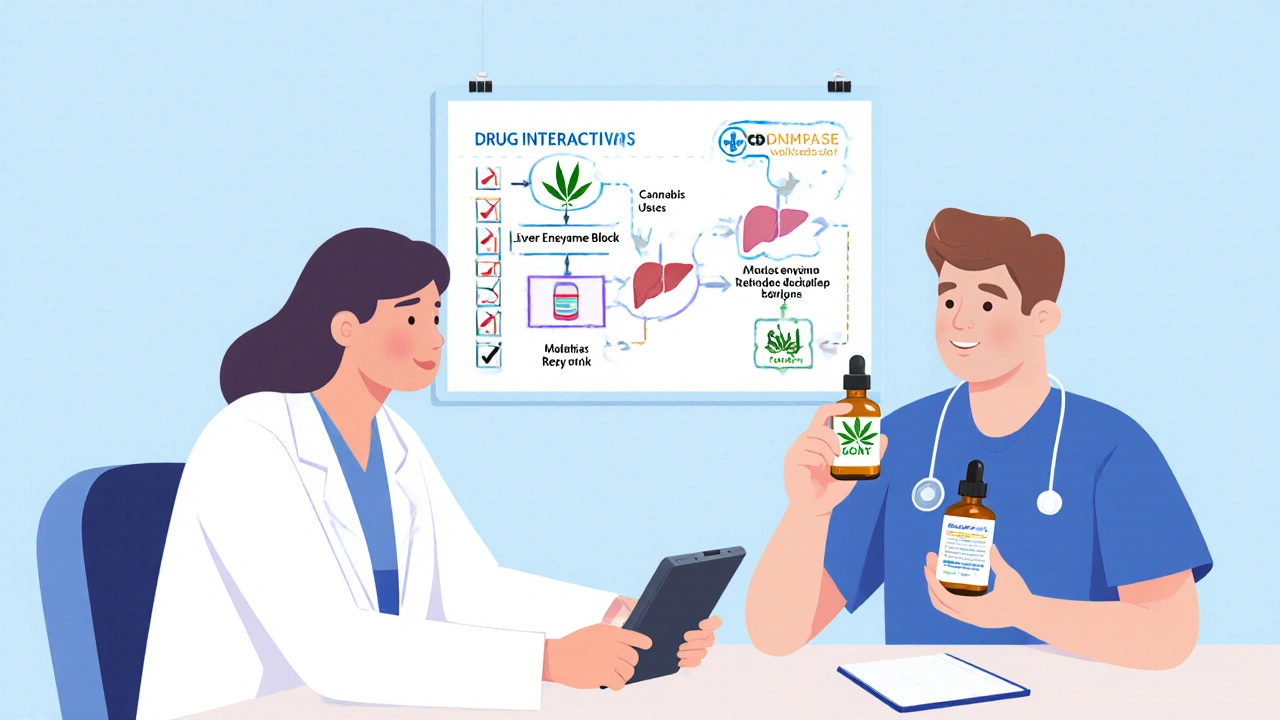
What’s Still Unknown
There are big gaps in our knowledge. We don’t know how cannabis interacts with newer drugs like GLP-1 agonists (Ozempic, Wegovy), which are used by millions for weight loss and diabetes. Only 12 studies have looked at this - despite 28% of cannabis users having diabetes.
We also don’t know the long-term effects. Most studies look at weeks or months. What happens after years of daily CBD with a blood pressure pill? No one knows.
And while some people report no issues - like one Reddit user who used 50mg of CBD daily with oxycodone for eight months without problems - that doesn’t mean it’s safe for everyone. Genetics, liver health, and other meds all play a role.
Bottom Line
Cannabis isn’t harmless just because it’s natural. When it meets prescription drugs, it can change how your body handles them - sometimes dangerously. The risks are real, documented, and growing as more people use cannabis.
You don’t have to give it up. But you do need to be informed. Talk to your doctor. Get tested. Track your symptoms. Don’t assume because something is "over the counter" or "legal" that it won’t interfere with your meds. Your life could depend on it.
Can CBD interact with my blood pressure medication?
Yes. CBD and THC can increase levels of calcium channel blockers like amlodipine by 30-40%, which may cause dizziness, fainting, or dangerously low blood pressure. If you’re on one of these medications, monitor your blood pressure closely after starting CBD. Your doctor may need to lower your dose.
Is it safe to use CBD with antidepressants like Zoloft?
Most people don’t notice major side effects when combining CBD with SSRIs like sertraline. CBD may raise sertraline levels by 10-15%, but this rarely causes problems. Still, if you feel unusually tired, anxious, or nauseous after starting CBD, talk to your doctor. Everyone reacts differently.
Does smoking marijuana affect my asthma medication?
Yes. Smoking cannabis can reduce levels of theophylline, a medication used for asthma and COPD, by 25-30%. This can make your symptoms worse. If you use theophylline, avoid smoking cannabis. CBD oils or edibles don’t have this effect, but always check with your pulmonologist first.
How long after taking CBD should I wait to take my other meds?
Some sources suggest waiting 2 hours between CBD and other medications, but there’s little evidence this works. CBD affects liver enzymes for hours - even days - so timing alone won’t prevent interactions. The safest approach is to get blood tests and work with your doctor to adjust doses if needed.
Can I use CBD if I’m on a blood thinner?
It’s not recommended without strict medical supervision. CBD can raise warfarin levels by nearly 50%, increasing bleeding risk dramatically. If you must use it, your doctor will need to check your INR every 3-5 days for the first two weeks and likely reduce your warfarin dose. Never start CBD while on warfarin without consulting your provider.
What should I tell my pharmacist about my cannabis use?
Tell them exactly what you use: the product name, whether it’s full-spectrum or isolate, the CBD/THC dosage per serving, how often you take it, and how you take it (oil, edible, vape). Most pharmacists aren’t trained to answer these questions - but the more info you give, the better they can spot potential dangers.
What to Do Next
If you’re currently using cannabis and any prescription drug, don’t wait for a problem to happen. Schedule a review with your doctor or pharmacist. Bring your medication list and details about your cannabis use. Ask: "Could this be interacting with my other drugs?"
If you’re thinking about starting cannabis while on meds, pause. Talk to your provider first. Don’t rely on Reddit advice or YouTube videos. Real medical guidance matters.
The science is still catching up - but the risks are already here. Your safety doesn’t depend on what’s legal or trendy. It depends on what’s safe for your body - and that’s something only you and your healthcare team can figure out together.


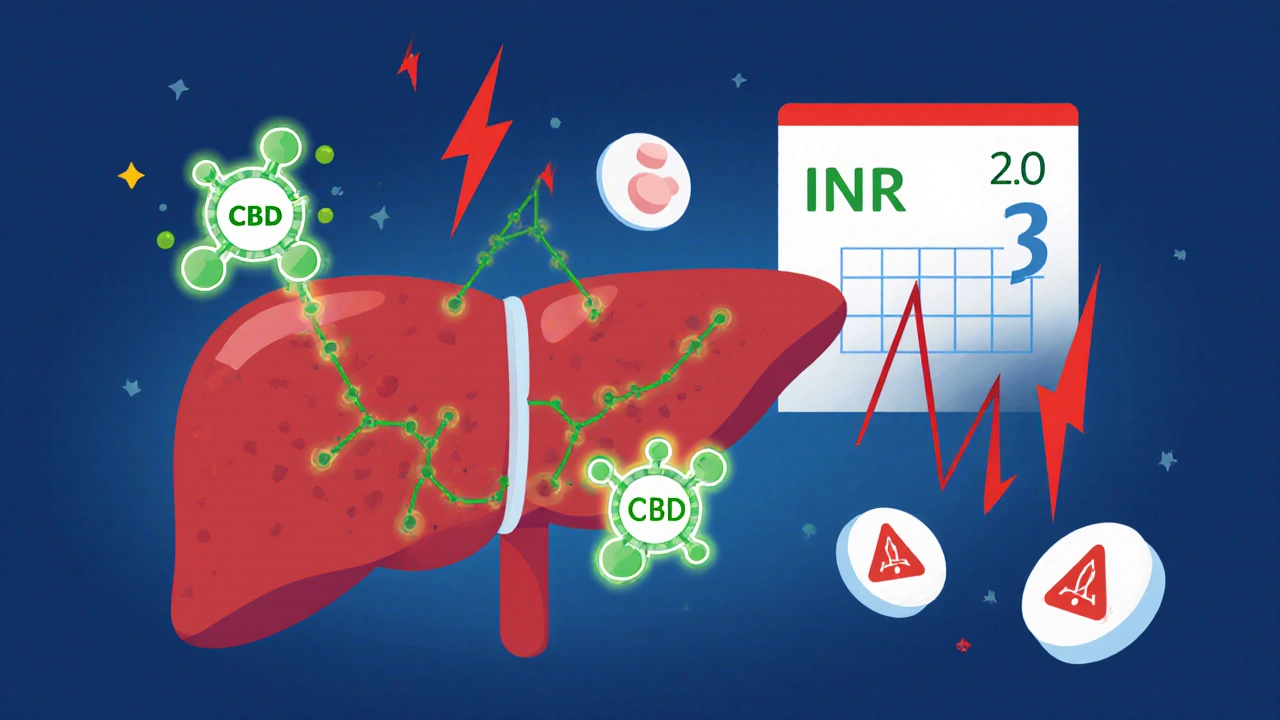
 Medications
Medications
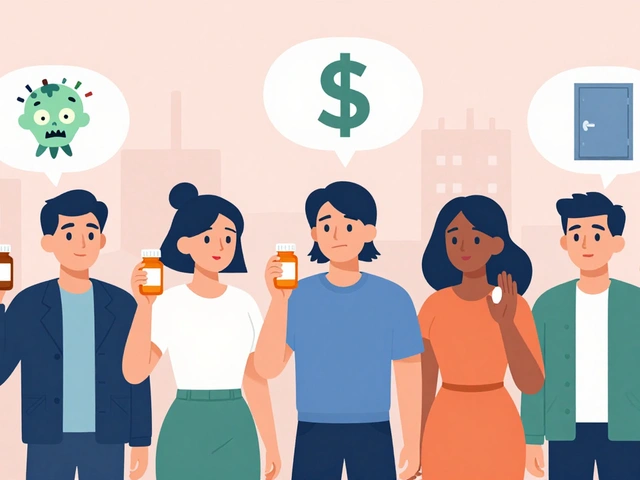


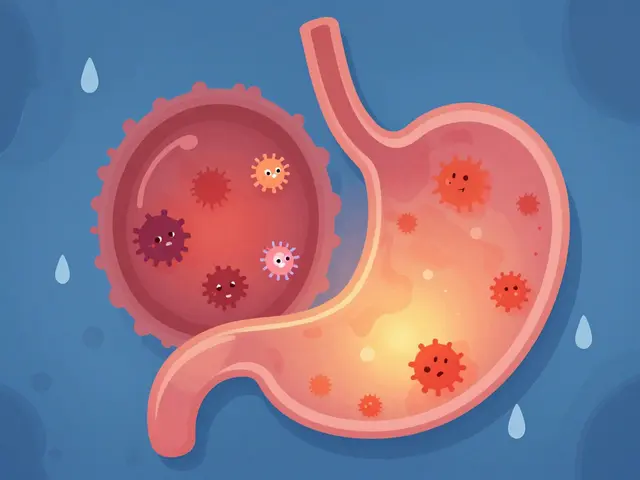
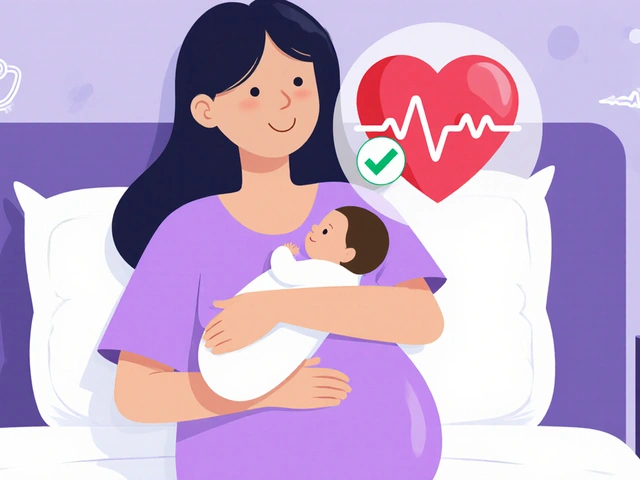
Astro Service
November 29, 2025 AT 20:50DENIS GOLD
November 30, 2025 AT 17:29Ifeoma Ezeokoli
December 2, 2025 AT 13:24Daniel Rod
December 3, 2025 AT 13:50gina rodriguez
December 5, 2025 AT 05:06Sue Barnes
December 6, 2025 AT 02:44jobin joshua
December 7, 2025 AT 00:14Sachin Agnihotri
December 8, 2025 AT 21:13Diana Askew
December 9, 2025 AT 14:21King Property
December 10, 2025 AT 06:54